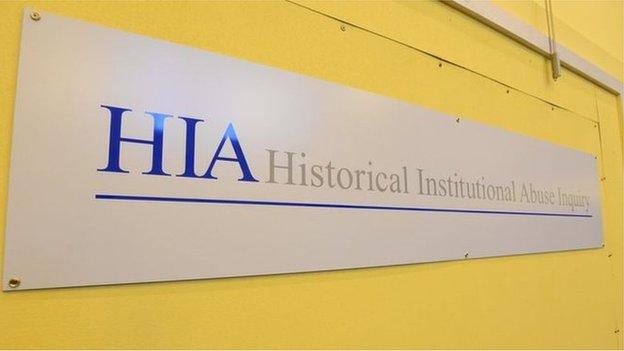Northern Ireland victims recall the impact of child abuse
- Published
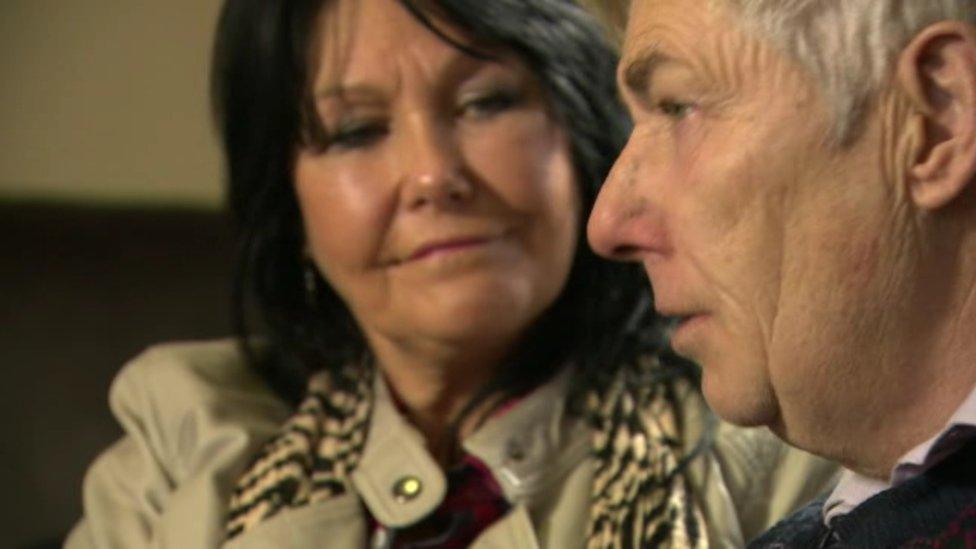
Margaret McGuckin says she believes her brother Kevin's learning difficulty is directly related to what he suffered as a child
Margaret McGuckin has been the public face of the campaign for victims of historical institutional child sex abuse.
But, privately there is a reason for her involvement - her brother Kevin.
The 62-year-old still lives in care. He has a learning difficulty, which Ms McGuckin believes is directly related to what he suffered as a child.
Their mother left home when they were children, leaving their father to look after them.
But a neighbour reported them to welfare and the four children were separated and taken into care.
"Emotionally that creates disaster in the rest of your life where you can't even form bonds with anyone, never mind your family," Margaret says.
With Margaret at his side Kevin tells me what happened to him at Rubane House in Kircubbin, County Down. "They had sex with me every night and every morning."
When I ask him who did that to him he says: "the Christian Brothers and the boys".
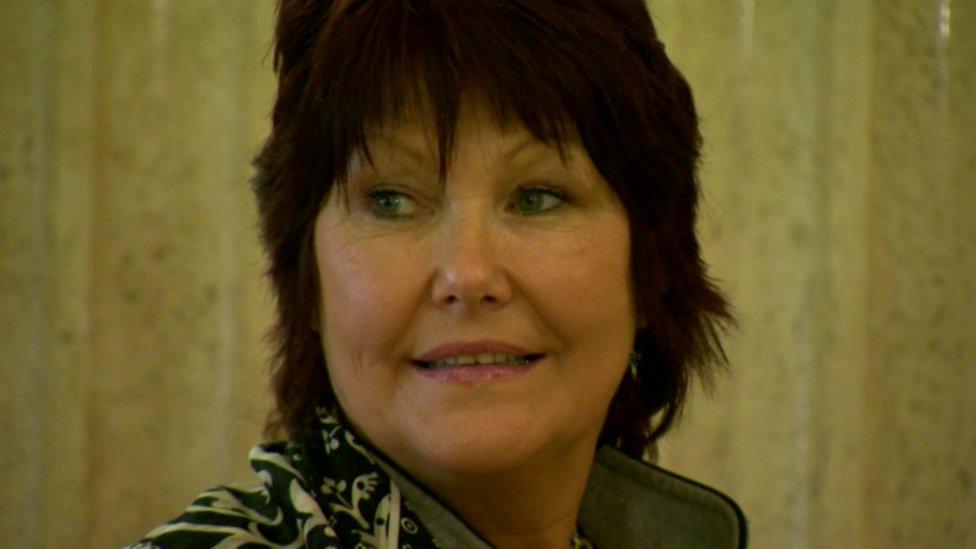
Ms McGuckin has been the public face of the campaign for victims of historical institutional child sex abuse
Margaret explains that the boys he is referring to are some of the older residents at the home. A story repeated often during the inquiry - and not only about Rubane.
There was physical violence too. Kevin says "they hit me with straps on my back. It was sore, I cried. They had me in tears."
Kevin was not able to give evidence in person at the inquiry. Instead he was interviewed by the inquiry team at his care home.
Margaret said her brother used to talk to her "about the beatings as if it was a normal occurrence and he started to open up and tell me about being given sweets and playing love games".
'Awful life'
"He was misinterpreting these signs for signs of love which he had missed out on from being separated from his mother and father. All he had were these priests and Christian Brothers and the older boys which he misunderstood for love but it was rape of an innocent child."
Margaret says there have been times during the campaign that she has wanted to give up, but the thoughts of Kevin and the others who suffered terrible abuse keep her going.
Looking back on the inquiry she says in the early months it was more adversarial than she would have liked: "It was like they were on trial and tears of grown men and women being grilled at the behest of the religious orders.
"Some have said they wished they hadn't gone. It's been an awful life for everyone."
Of course it was not just the Catholic Church that had questions to answer. Secrets of State abuse also had to be told.
Ron Graham was abused at Kincora Boys' Home in Belfast. He had been taken into care when his teachers realised his father had been beating him. What happened to him in Kincora turned out to be even worse.
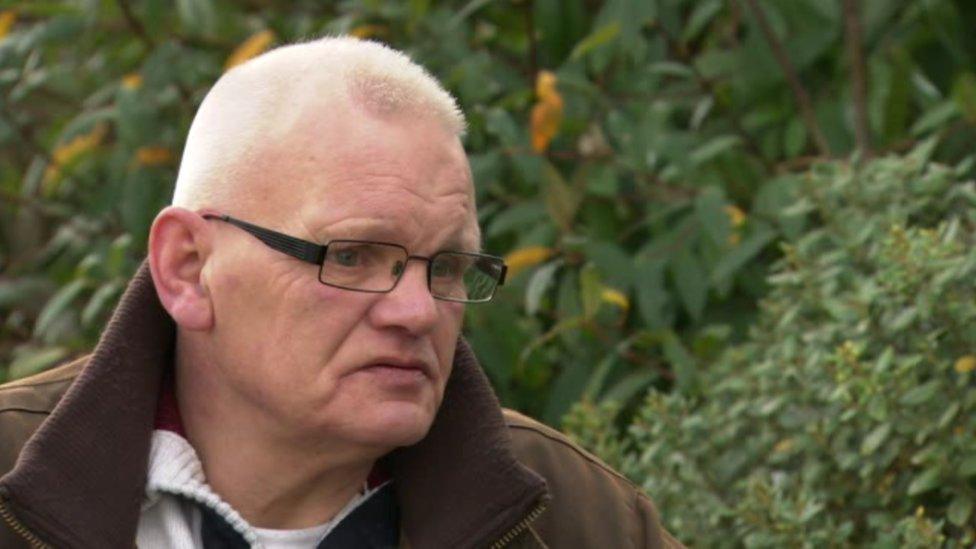
Ron Graham was abused at Kincora Boys' Home in Belfast
Ron gave evidence at the trial of William McGrath, a former housemaster at Kincora who was jailed for four years.
"When McGrath approached me it was in a fatherly way - and I think he played on that knowing how emotional I was about it at the time - that was the first time he raped me - and I remembered after that happened he said to me clean yourself up and don't say a word," he said.
Ron says social workers would visit, but the staff at Kincora told the boys they would be listening to every word and that stopped them telling anyone in authority what was happening:
"I had cut my wrists and one social worker asked me if I'd had an accident," he said. She said 'stop being silly and stupid, you're in a good place'.
"You had no-one to turn to - no-one would listen - no social worker would listen - you were just left - you had nowhere to go - my family disowned me anyway so you had no family to go to. You just had to bear it and get on with it."
The children who ended up in these institutions had already endured the pain of loss, abuse or neglect in their own homes.
To then face torture at the hands of the church or state seems impossibly cruel.
Most of those still alive today want someone to pay for what happened to them.
- Published20 January 2017
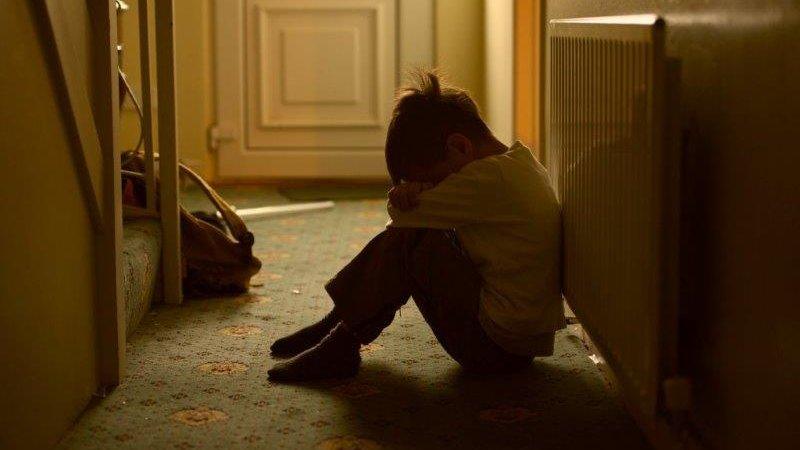
- Published8 July 2016
